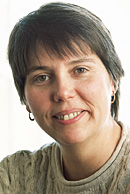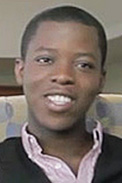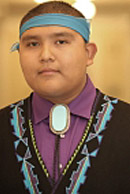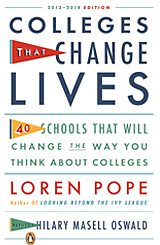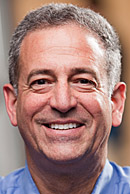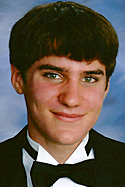Only a road trip to a local nature center to pick up some duckweed for a biology class that required the use of her car prevented assistant laboratory supervisor JoAnn Stamm from biking to work every day this summer.
Stamm’s dedication helped Lawrence University edge Ripon College to finish first among 111 colleges and universities nationally in the small-colleges division (less than 3,000 students) in the recently completed first National Bike Challenge.
Led by Stamm’s team-high 1,108 miles, Lawrence’s 27 faculty and staff riders logged 6,270 miles during the challenge that ran from May 1 to August 31. One point was awarded for each mile ridden with 20 points awarded to each rider for each day they biked.
Lawrence finished with a total of 21,505 points, edging Ripon College, which had led the challenge most of the summer, by just 279 points. Out of 9,578 workplaces nationally who participated in the bike challenge, Lawrence placed 124th.
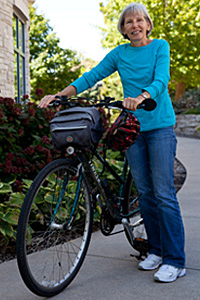
“Everyone at the bank knows me because I come through the drive-in on my bike,” said Stamm, a 15-year Lawrence employee who makes the daily three-mile trek from her home to the Lawrence campus on an 18-year old Timberland crossroads bike. “I do my grocery shopping on my bike. I just try to ride every day all year long, as long as there isn’t any snow on the street.”
For the past several years, Stamm has averaged about 1,500 miles a year on her bike, but is hoping to top the 2,000-mile mark in 2012.
“Biking has been a part of my life since I was a teenager,” said Stamm, 58. “We only had one car in my family growing up so I used a bike to get around. It just became a part of my lifestyle.”
Patty Leiker, Lawrence’s employee wellness coordinator, said she was thrilled when the final standings were posted and Lawrence finished first in the nation in its category.
“It’s exciting to know that Lawrence values the well-being of students, faculty and staff and continues to support these and other types of wellness offerings through both on-campus opportunities and collaborations within the Fox Cities community,” said Leiker. “Kudos to all the Lawrence folks who participated.”
Lawrence will be recognized Thursday, Sept. 27 for its winning performance by the City of Appleton’s Trail Advisory Committee and Andy Clark and Elizabeth Kiker, president and vice president, respectively, of the League of American Bicyclists. The city of Appleton also participated in the challenge, placing second nationally in the “communities” category.
The awards presentation will be part of a public forum — “Making Appleton More Bicycle Friendly” — hosted by Lawrence at the Warch Campus Center Cinema from 6-7 p.m.
“Kimberly-Clark is pleased to be the corporate sponsor of the first National Bike Challenge. We congratulate Lawrence University on its first-place finish in the small university category,” said Rob Gusky, Kimberly-Clark’s Ambassador of Cycling. “As the National Bike Challenge was developed in the Fox Cites, it is exciting to see a local university have great success in this program.”
Kimberly-Clark Corporation organized the National Bike Challenge in partnership with the League of American Bicyclists, Bikes Belong and Endomondo, a mobile-based sports and fitness tracking community, as a way to promote bike ridership for both transportation and recreation purposes. The entire challenge generated 12,094,591 miles ridden, surpassing its overall goal of 10 million miles.
Sixty-three percent of Lawrence’s collective 6,270 miles were logged for transportation purposes, saving an estimated 5,740 pounds of carbon dioxide emissions.
About Lawrence University
Founded in 1847, Lawrence University uniquely integrates a college of liberal arts and sciences with a world-class conservatory of music, both devoted exclusively to undergraduate education. It was selected for inclusion in the Fiske Guide to Colleges 2013 and the book “Colleges That Change Lives: 40 Schools That Will Change the Way You Think About College.” Individualized learning, the development of multiple interests and community engagement are central to the Lawrence experience. Lawrence draws its 1,450 students from nearly every state and more than 50 countries. Follow Lawrence on Facebook.
